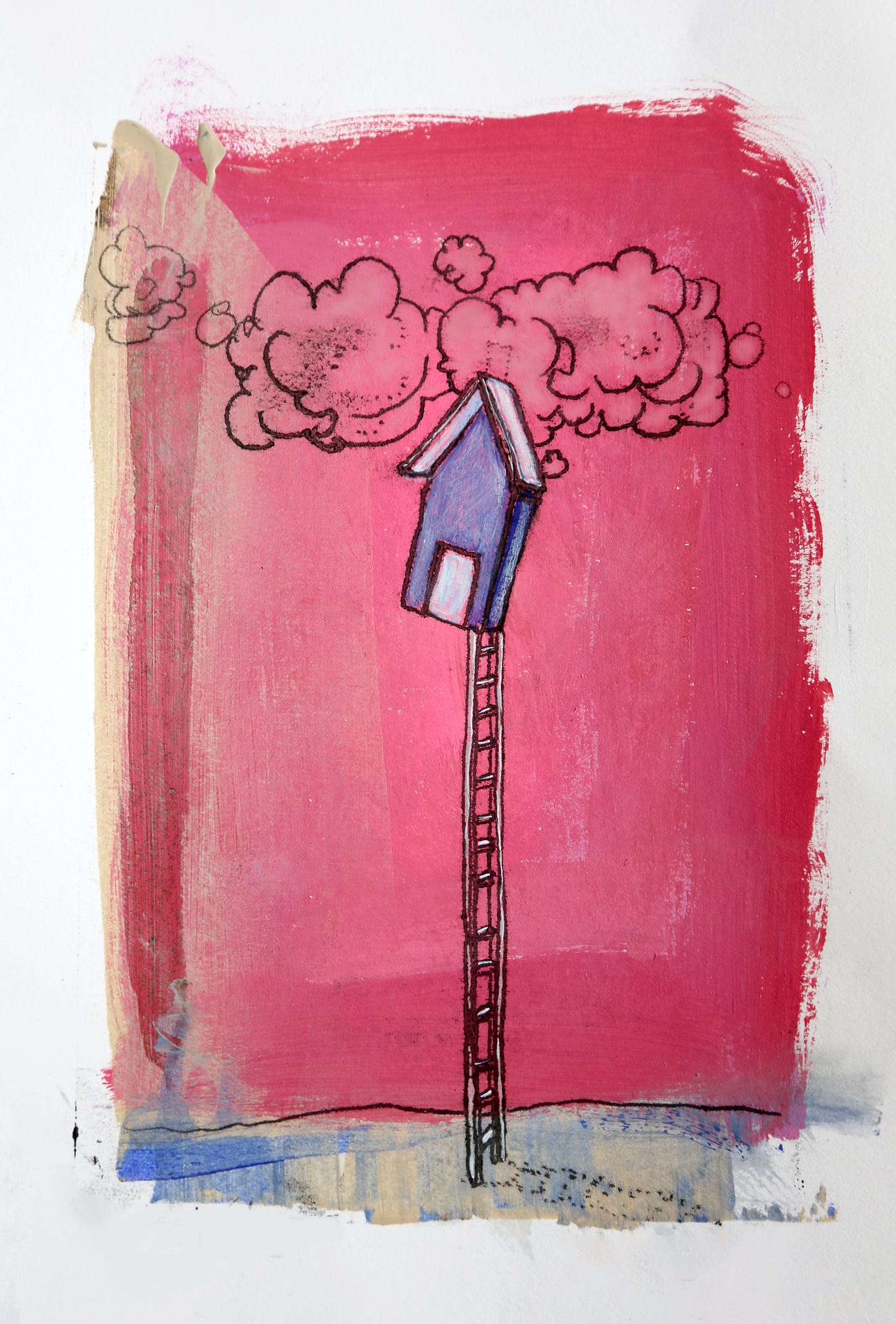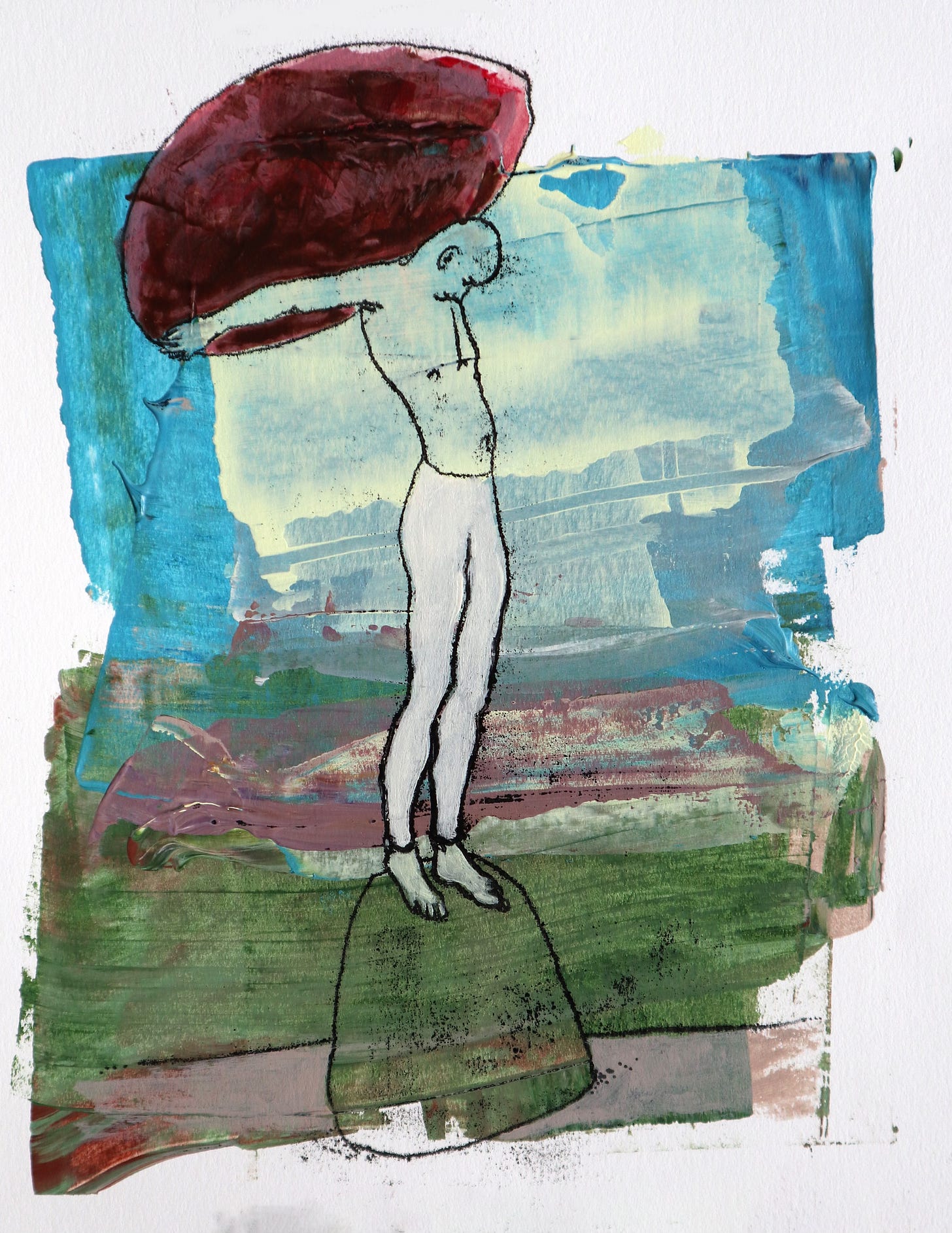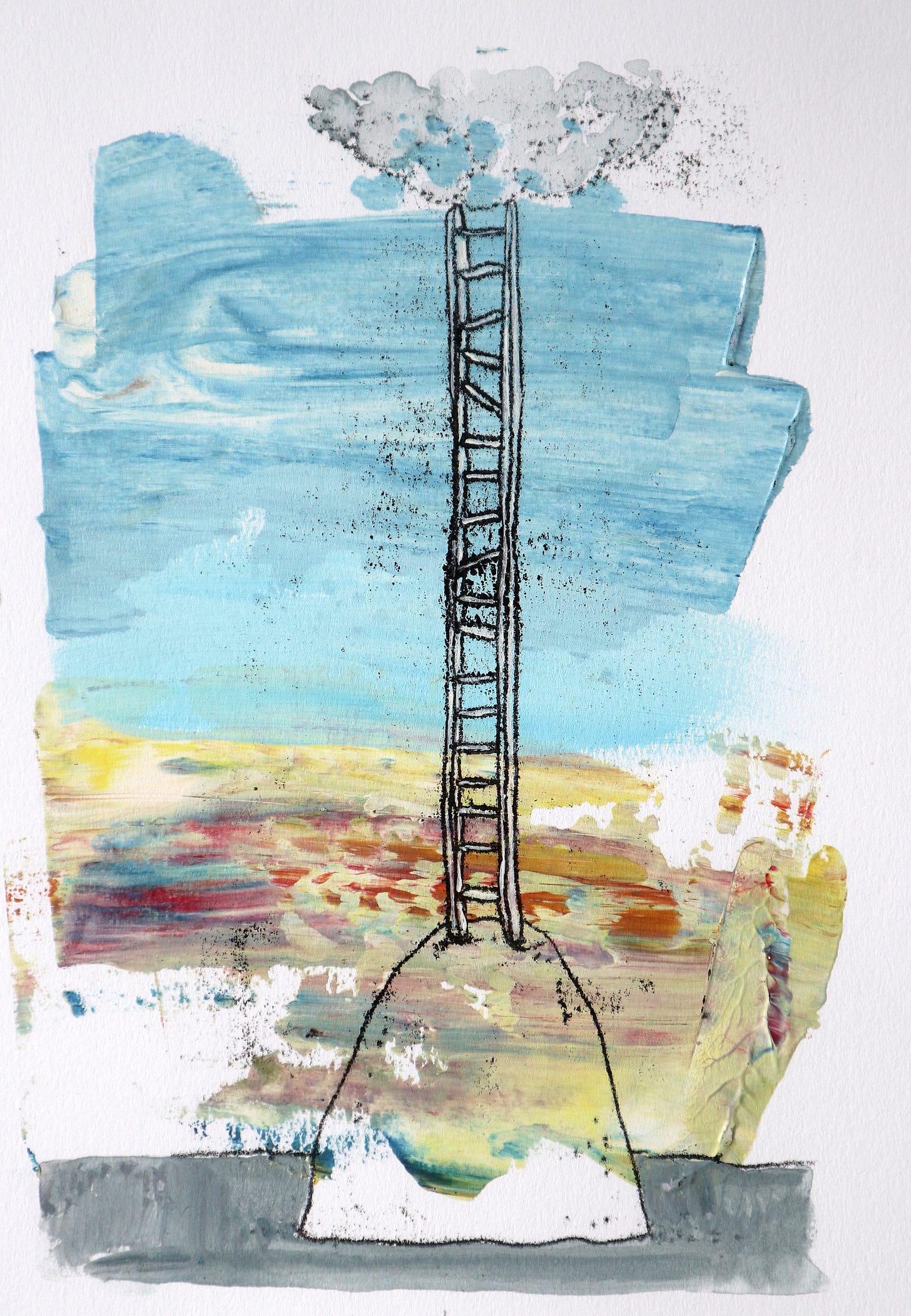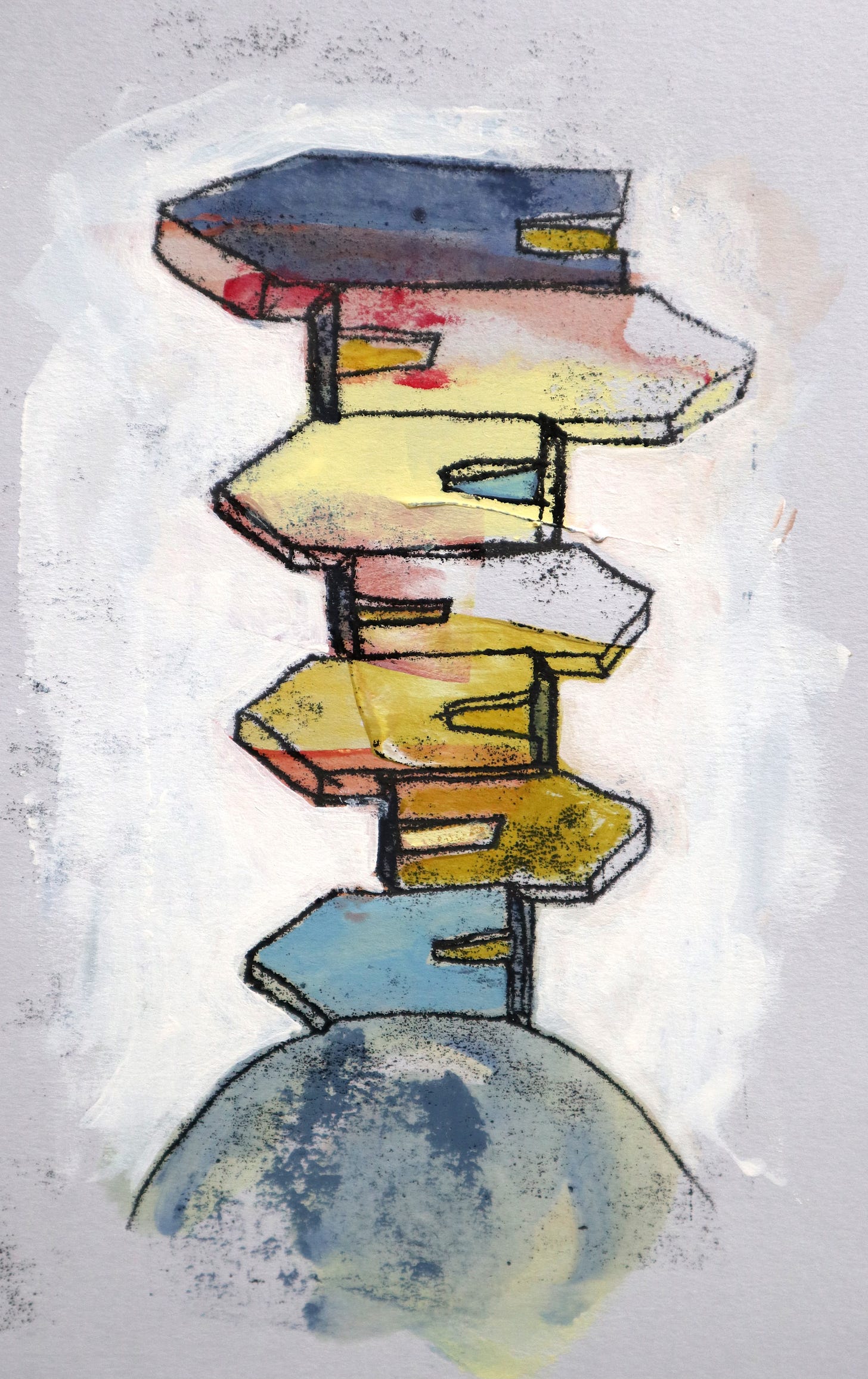Improving Our Time
Learning to Love Our Broken World
My faith was born in a moment of crisis as a young man. Having finally relented to try prayer and obedience as I approached my eighteenth birthday, I leaned on God to help me after the tragic loss of my oldest brother to a suicide. During the years that followed as I worked at mending my wayward teen ways, God was a source of comfort and strength. He reassured me with promises of a heaven where life’s injustices would be redressed and of his power to help me to overcome myself so as to get to that heaven.
I attend church and the temple with the same regularity as always, and I continue to depend on divine power and find hope in divine justice. As I am about to begin my seventh decade, however, I notice that something has shifted in me. I find myself less anxious about my worthiness before God and my prospects for salvation and more concerned about what I can do to make life better for others. Making exaltation my singular obsession, it seems to me now, risks too much self-focus and judgment of myself and others. Besides, I don’t know why I would want to be in a place where I am asked to be content with the fact that others cannot be included. In fact, I don’t believe God wants such contentment in me; to walk with God, it seems that I need to be, like him, in relentless pursuit (to paraphrase Elder Kearon) of universal human flourishing. This shift is akin to the difference between seeing God as my emotional mainstay and seeing him as someone to love and emulate. It is the difference between seeing church and its teachings and ordinances as ends in themselves or as means to the end of universal human flourishing and happiness. Exaltation starts to look a lot more like an extension of an abundant life of serving and healing now in this world, of bringing heaven and earth, God and humankind, closer together.
When I was in the throes of my growing faith and self-reform, I met Lowell Bennion. I remember him telling me that he was not all that interested in his own salvation; all he wanted in the next life was the chance to keep serving alongside Christ. At the time, given my own battles with myself, this confused me; I worried that it seemed disrespectful of the great gift of eternal life, perhaps even shortsighted or secular. But Lowell’s point, I now see, was to honor the great work and glory of God “to bring to pass the immortality and eternal life of man” (Moses 1:39). To Lowell, the restored gospel was the grandest project of human development, ennoblement, and flourishing the world had ever seen. He insisted that we are “here to develop [our] potentialities as children of God—that [we] might find joy.” He added: “The purpose of life will be found in life itself. That toward which man aspires is more life—abundant and eternal life.” Happiness is the Latter-day Saint quest of selfhood and it begins here on earth: “The beginning and end of life is to experience it deeply in all of its finest expressions. Self-realization or self-fulfillment—to be what nature and God intended us to be—appears to be the ultimate meaning of life. Salvation is a process of becoming, not a reward given us at the end of our journey or on judgment day.”
Salvation, then, begins here in the work we do to liberate one another from whatever holds us back from our potential. For Lowell, that meant teaching the gospel and living it in service, working to bring values, comfort, aid and resources to those who had been discarded by modern life. He believed that a Latter-day Saint was called to a life, not merely of purity and holiness, but of social morality, to meet the challenges of one’s time. He practiced the very core of Christianity—the charge to visit the fatherless, the widows, the hungry, the imprisoned, and the sick—not what he provocatively called its weak alternative, Churchianity.
Jesus’s great call to lose ourselves should not be lost on us. A focus on personal progress and self-improvement can, if we are not careful, replace the importance of giving our attention to the needs of the world around us, which ironically may be the very thing that would improve and maybe even save us. If not, we can end up with a church culture where we perpetually do things as if on a stage in a performance for an imagined audience. The impression we sometimes give that church service is for the church and not for people, or that it is the only kind of service that matters, can alienate members or stimulate cynicism about the religious project.
I should clarify that I am not so cynical. Sometimes we have to learn first to perform for others before our performance can start to change our very hearts and give us experiences of a deeper selflessness. As I aged, I noticed times when in my church service my left hand was utterly unaware of what my right hand was doing. And, usually after the fact, I noticed something remarkable: Forgetting myself, even if only momentarily, healed the wounds of individuality far more than any amount of self-scrutiny and self-help. And I came to want more of it in all areas of my life. In our small church communities, we are training ourselves to love not just our families or our ward families, but the entire human family. I can’t begin to account for the ways church service has blessed my life. It is a remarkable and rare experience of community in an otherwise isolating and individualistic world today, but it too can isolate and become tribal if it remains its own goal.
Crucial to that turn to the world is what Amulek teaches is “faith unto repentance” (Alma 34:15). Failing to care for others in temporal need, he warns, may disqualify us from the very salvific healing God offers. He explains: “After ye have done all these things [pray, repent, obey], if ye turn away the needy, and the naked, and visit not the sick and afflicted, and impart of your substance, if ye have, to those who stand in need . . . behold your prayer is in vain, and availeth you nothing, and ye are as hypocrites who do deny the faith” (Alma 34:28, emphasis added). Attending to the well-being and flourishing of others, seeking to ameliorate their suffering and to redress the injustices of their circumstances are what it means to “bring fruit unto repentance” (34:30). The needy and the sick are in our wards but far more are also in our society, and our faith is measured not merely by how we attend to our own but to all. Faith unto repentance, it seems to me, means becoming more fully, more abundantly alive as a whole person and more connected and capacitated to bring others to that same fullness.
There is, in other words, no such thing as an entirely spiritual life that we live apart from the very earthly and often unjust circumstances and suffering of our brothers and sisters. There is no religious life apart from a civic one. To turn away from social morality is to render the very power of Christ’s atonement in our lives for naught. Amulek’s teachings suggest that Christ wants to give us more power to turn to our brothers and sisters, not just to return to him. Our inability to use our faith to turn to others is a measure of a kind of faithlessness.
In all of our caution about secular values, we do not speak often enough of our obligation to love this world, even our enemies. In all of our talk of self-reliance and preparation for emergency, we do not talk enough about how this puts us in a position to help others, nor of how reliant we all are on good social and civic conditions that make self-reliance efficacious. For all our focus on family, we sometimes neglect to identify what strong families can offer our brothers and sisters who are without them. For all our emphasis on the sacred nature of church callings, we forget that they prepare us for service in the world. I like Elder Christofferson’s reminder that we should learn to work with other people of good will in good causes because “our quorums and wards and all the organizations really do facilitate and prepare us to lead out and, in some cases, to join others” (emphasis added). In all of our talk of Christ, we do not speak often enough of where we find him: in the countenance of the least of those who live among us.
We are not aiming for an existence that is altogether different from this one. We are instead striving to earn the right to stay put, to enjoy and improve the sociality of this life, and to continue learning and repenting. In Joseph Smith’s revelations, there is no rupture but a continuum between this world and the next, and our love for our time in this life makes life more heavenly here on earth and in the next life; it brings, in Adam Miller’s memorable formulation, an early resurrection and life in Christ before we die. To begin the holy walk with God is to accept that life in this world where we are now is not a way station or a mirage but our present and future holy home. This is the time and place where we are to “act justly and to love mercy” (Micah 6:8).
God so loved this world that he sent his Only Begotten Son. What are we willing to do for love of this world?
I am confident I know something of heaven because of the deep joys I have felt here on earth in the bosom of family love, the bonds of friendship, the experience of freedom, the joy of learning, beauty, and music, the love of the natural world that surrounds us and nurtures us with unspeakable generosity, and in the experience of self-forgetful service of others. And I suspect that whatever hell is, I can learn just by looking around me at the terrible injustices of this life and the many people who will never have even a small portion of such riches. The Final Judgment represents what God wants us to decide here and now: Which reality do we prefer for ourselves and others, and how badly do we want to pray and work for it? “Thy kingdom come, thy will be done, on earth as it is in heaven,” he taught us to pray.
Some say that Jesus will come again when the world is so wicked that he must finally come to clean up the mess we have made. Some say he comes again when the world is finally prepared and redeemed enough for his return. Maybe it is both. It is at least clear that the kingdom of God is not unrelated to the civilization we build here below. We Latter-day Saints have solemnly promised to build the kingdom of God on the earth and to labor for the prospect of establishing Zion. It seems to me that this requires more than a shrug of the shoulder and a retreat inside the walls of church whenever evil transpires in this world. The world’s problems are by no means easy to solve, but complexity is never an excuse for those lazy theologies we invent to help explain to ourselves why bad things have to happen the way they do and why, in the end, we are justified in staying our hand of help.
King Benjamin identifies a similar problem when we say in our heart that the beggar has brought upon himself his own misery. This is a folk theology that, in effect, sees injustice as divine justice in disguise: everyone gets what they deserve. The political or environmental refugee, the indigent, the hungry, the physically or mentally ill, the incarcerated, the abused woman or child, the sexually assaulted, the racially oppressed, those limited or disadvantaged by circumstances external to them, and those crushed by war—are we really to believe they all bring upon themselves their own woes, that they only need to try harder? To choose to do nothing in the face of suffering or injustice is to justify it, to imagine to ourselves that God wants it. This is tantamount to attributing our shortcomings to his character.
We don’t always know what to do about problems, like intergenerational poverty or war, that seem to require more than the simple application of individual morality. And yet it is hard to escape the impression in reading the Old Testament that collective, shared, even structural, problems are the ones that get most of the attention of the Lord’s prophets. The prophets address nations, peoples, towns, and tribes more than they speak of individuals; they speak of the kinds of evils that emerge and metastasize when we collectively look the other way in quiet acquiescence. Until and unless we try to think through collective civic responsibility, the alternative will always be to lay blame for problems squarely on the shoulders of anyone other than ourselves.
Of course, not all beggars are innocent victims, and playing the victim is sometimes just selfish play. I am only saying what I hear King Benjamin saying: it is not my place to judge because when I do, he warns, I demonstrate that I disqualify myself for heaven and have “no interest in the kingdom of God” (Mosiah 4:18). So whatever the kingdom of God is, whether it is of heavenly or earthly substance, it seems to consist of people who see each other with compassion, with forbearance, and who act quickly and without judgment on behalf of human relief and well-being. It is, as he suggests, a community of beggars who understand that our debt to a generous and good God calls us to care for one another in our shared brokenness. Salvation, in other words, is social, not just individual.
King Benjamin dedicated himself simultaneously to teaching the gospel and to service, to strengthening the material and social conditions that would minimize the chances of people becoming beggars and allow the powers of Christ’s atonement to be more widely available and efficacious. These conditions include political liberty, good governance, fair judgment and accountability for crime, peace, education, and some measure of equity and equality, all of which involve very human and shared work (see Mosiah 2:10–14). That is, we help build God’s kingdom when we help create the conditions in which fuller self-realization becomes possible for others. The flourishing of God’s creations, including us humans, appears to be the greatest source of his happiness and glory, as we each fulfill the measure of our creation. When we join him in this great cause, we are, like him, happy and fulfilled because we are singularly devoted to his high and holy purpose of the abundant life.
Amulek echoes Benjamin’s warnings when he says, “if we do not improve our time while in this life, then cometh the night of darkness wherein there can be no labor performed” (Alma 34:33). To my younger ears, I heard “improve our time” as a call to self-improvement, and no doubt that is true, but now I also hear it as a call for Latter-day Saints to concern themselves about their time, their culture, their world, and to seek to improve it. I hear it as a call to be a better version of ourselves so that we are better equipped to help others do the same.
To do this, Amulek and Benjamin instead urge us to “impart of our substance” (Alma 34:38; Mosiah 4:17) to help redress the inequities of life. Maybe to my younger ears, I heard this as a charge to give money, to pay fast offerings, and that too is no doubt true, but now I hear it as a broader charge to give of “all the riches that I have” (Mosiah 4:19), including my health, wealth, freedom, education, talents, personality, skills, relationships, opportunities, home, faith, and my voice to the great cause of granting substance and increased opportunity to others. The goal, as Jacob explains, is “to think of your brethren as yourselves and be familiar with all and free with your substance, that they be rich like unto you” (Jacob 2:17). Our holy Redeemer would not be worthy of emulation if he ever thought that walking among and touching and being touched by strangers and the unclean would somehow diminish him.
I want to share my faith with the world. I also want to teach a child or an adult to read. I want to bear testimony of Jesus, and I also want to fight for laws that protect and strengthen the vulnerable. I love the Creator, but I also want to honor him by protecting and restoring his creations. Doctors and nurses, judges and lawyers, scientists and technicians, educators and artists—these too can be part of the great work of God. Their work, especially when consecrated to kingdom building, requires no less prayer and holiness than any church calling to do well. As a Christian, if my labors bring someone closer to their divine potential in any way, am I not joined with God in his work and his glory to bring to pass the abundant, immortal, and eternal life of humankind? If I remove obstacles that prevent someone from accessing the same opportunities I have to enjoy political liberty, an education, or good health care, am I not interested in God’s kingdom?
God is pleased when we don’t wait to be commanded in all things but instead are already “anxiously engaged in a good cause and do many things of [our] own free will” (Doctrine & Covenants 58:28). What a gift we Latter-day Saints could be to the world if we were less reactive to what we don’t like in the world and more creative and proactive in bringing our whole selves to the cause of building cultures that can be host to all that is good and praiseworthy.
Is it too naïve to hope that we Latter-day Saints, small though we may be in number, could be known not just for our emergency relief but for our attention to root causes of suffering? Could we be known as outsized champions for ending intergenerational poverty, promoting peace and good governance and universal access to quality health care, working for equality between the sexes and for strong families, shunning materialism and exemplifying modest and sustainable consumption, investing in and defending education for all, protecting the rights of economic, environmental, and political refugees and their children, restoring damaged ecosystems and natural resources needed for human flourishing, and strengthening institutions and cultivating cultures dedicated to moderation and unity among peoples and nations? Parents labor not just for a child’s survival but for her development; social morality is parental work writ large.
I recognize, of course, that some might conclude that we either don’t need church to do this service or that believers should avoid any service that too much resembles secular humanism. It’s worth stating the obvious: we need to care about the most vulnerable because Christ commanded us to. If secular humanism has borrowed from Christian social morality, it has done so because the Golden Rule is the greatest moral code the world has ever known. And let’s not forget how much spiritual preparation such work requires. Service can be extremely difficult and draining, and it can tax our ability to sustain it. We will always need the renewal and power that comes from our fidelity to our covenants with God.
I understand too that many of us have a distaste for politics because it can be so divisive, but we cannot be peacemakers or unifiers as our church leaders have urged by being passive or apathetic, nor by being hyperpartisan. We must be engaged, armed with love, and committed to dialogue and practical problem solving. We should refrain from pundit miming and armchair quarterbacking and simply get in the game.
It is a reasonable hope that in the next life God will resolve a great many things that we could not or cannot resolve here. I certainly feel that hope and it steadies me in this time of great anxiety. But I believe that that steadying is given to me not because God wants to comfort me and shield me from the trials and heartbreaking sadness of the world but because he wants me to act this day in the world with that steadiness. This is the time we have been given and the world we have inherited. The conditions of our age are the crosses we must bear. Let us meet them with love and hope and with the confidence that we have been called and prepared to serve God and our fellow beings by improving our time, while there still is time.
George B. Handley is a professor of interdisciplinary humanities and comparative literature at Brigham Young University. Recent books include The Hope of Nature, If Truth Were a Child, and the novel, American Fork.
Art by James Rees.









